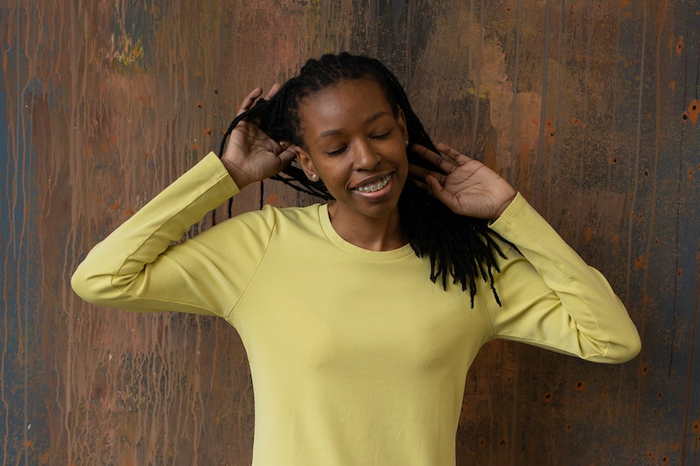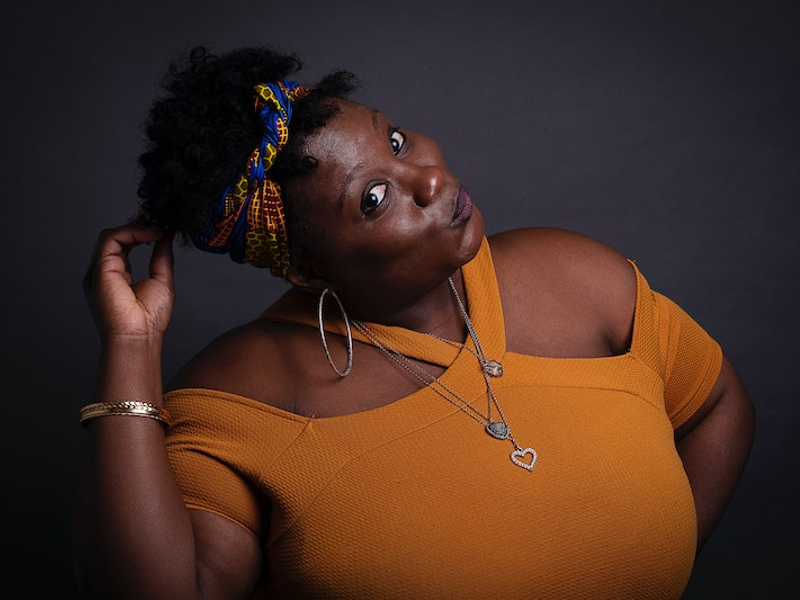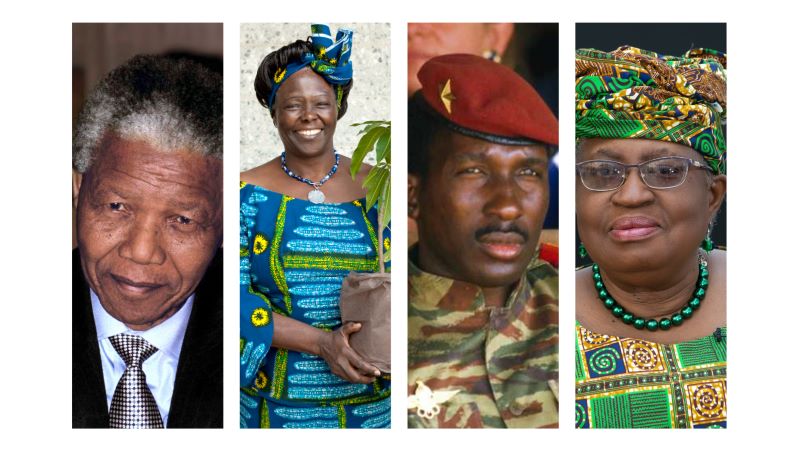Photo by Dellon Thomas from Pexels
Hair has always held a special place in the identity and self-expression of individuals, especially for Black women. More Black women are joining the natural hair movement, embracing the kinky textures and saying goodbye to relaxers and other chemical products. At the same time, they have to deal with the thousands of unwarranted comments and questions. Is your hair real? How do you maintain it? Do you wash it? Can I touch your hair? Black people’s hair has often made them a target for “offensive” comments and questions. Though these questions may be from a place of curiosity and a fascination for Black hair, some see it as a form of microaggression.
Why you should not touch a Black woman’s hair
Can I touch your hair?” is a question that many individuals with Afro-textured hair have encountered. It is a question that can break relationships before they even start.
This fascination with the texture of black hair is not new. As a result, strangers often feel the urge to touch it. We get the curiosity and a fascination for Black hair, but reaching to touch without permission is unacceptable. When Solange sang don’t touch my hair, she meant it. Blacks are tired of random strangers touching their afro hair like they were some kind of alien or artifact in a museum. It is important for strangers to keep their hands out of Black women’s tresses, no matter how fascinating they may appear. You may ask, why is it a big deal to touch a Black woman’s hair?

Photo by Monstera Production
Personal boundaries: Do not touch people’s hair even out of curiosity. There’s an unspoken rule about personal boundaries, and that rule doesn’t disappear when someone’s hair looks unique. You can admire and compliment the hair, but when you become fascinated to the point you want to touch it, it’s a no, no. It shows a complete disregard for personal space.
It takes time to fix: Imagine having your natural hair freshly washed, moisturized, and styled the way you want it. And a curious person just proceeds to run their fingers through your hair just because they are fascinated or curious. Black women get their hair done in different styles and sometimes it takes hours and hours. These women do not want anyone messing with their hours of hard work.
It is unsettling: When someone reaches for an afro hair, it is a signal to others that this Black lady is different. How many people would see a White lady and want to touch her hair?
Don’t touch my hair: Women share their experiences
Amaka was born and raised in Nigeria and had never had people looking at her hair like she was from Mars.
“I had never considered my natural hair to be unkempt, and messy until I got to the United States. Back in Nigeria, no one would ask why is your hair this messy just because it’s styled differently. When I moved to the United States for studies, I experienced a whole new world. People would ask me silly questions about my hair. Some others were bold to tell me to my face that my hair looked unkempt.”

Photo by Ogo
All the comments did not stop Amaka from carrying her natural hair. According to her, it is something she is really proud of.
When Linda was relocating abroad, she decided to cut her hair and join the natural hair movement. Since she was on a low cut, she always wore weaves.
“When my hair had grown a bit, I wore it to the office and it was a topic of discussion for the whole day. I was asked so many questions and had to constantly explain my hair, its texture, and its maintenance. It continued for a while until my colleagues got used to it and stopped asking too many questions.”
Jane decided to relax her hair because she got tired of the curious stares and questions. She also did not like strangers always messing up her hair with the uninvited touch.
“Every time I go to the store, there is one stranger looking at my afro like it’s something from space. One time I just finished styling my hair and stepped out. This lady just walked up to me and ran her fingers through my hair without even asking for permission. I was too shocked to speak. I just got tired and decided to wear my hair straight.”
As for Chinma, she has been lucky and has only ever gotten compliments about her natural hair.
“I’m really lucky. I only get questions on what products I use and how I maintain the hair, which I’m always more than happy to share.”
What styling options are available?
Black hair is diverse and rich, ranging from tight coils to flowing locks.
Many people consider Afro-textured hair too much work, but it doesn’t have to be. Maintenance can come down to using the right product and choosing the right styles for your hair.
You can try different styling options which are both simple and comfortable. They include wash and go, cornrows, dreadlocks, twists, afros, and Bantu knots. All these styles are not just fashion statements. They have historic connections to Black pride, culture, religion, and history.
For many people, especially those from Black and African communities, hair is a powerful expression of identity, culture, and history. When Black people say “Don’t touch my hair”, it is a plea to recognize and honor this significance.





